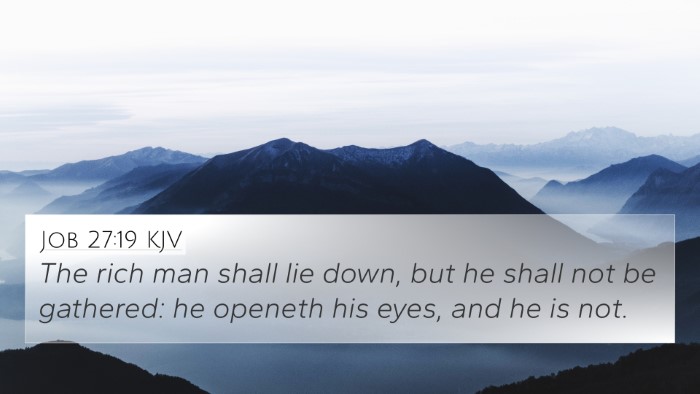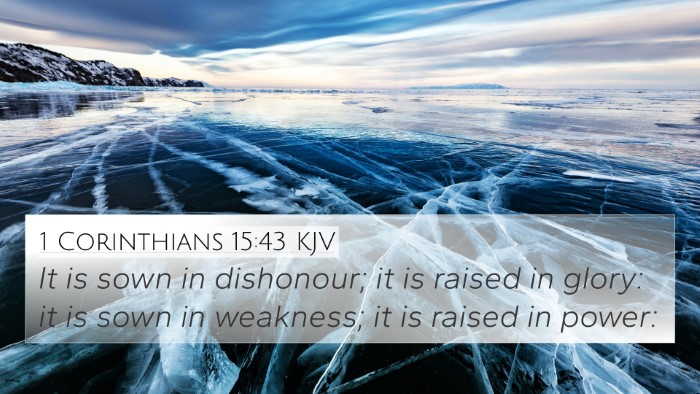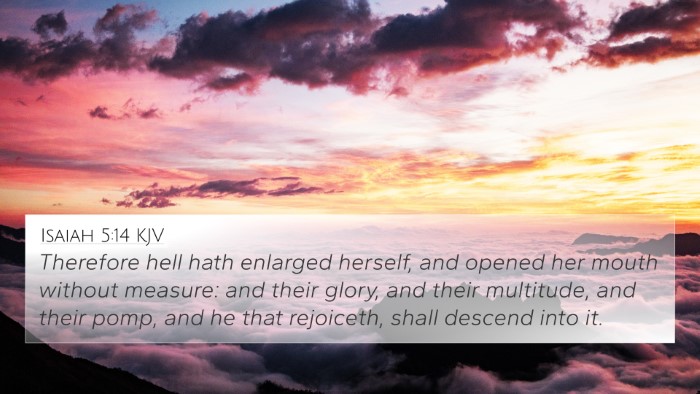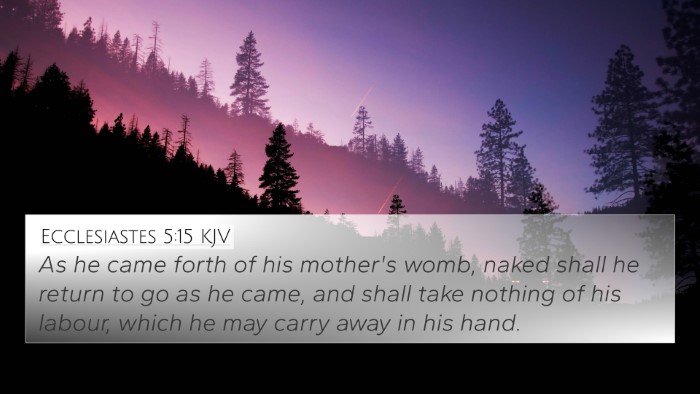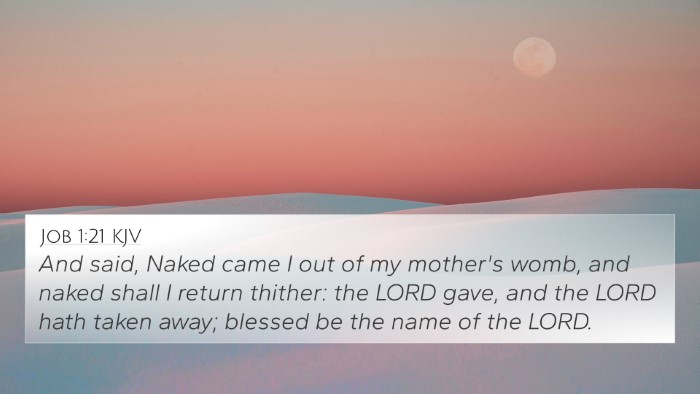Psalms 49:17 - Understanding the Verse
Psalms 49:17 states, "For when he dies, he shall carry nothing away: his glory shall not descend after him." This verse speaks to the transient nature of wealth and the futility of relying on material possessions for true security and status.
Commentary Insights
Matthew Henry's Commentary: Henry emphasizes the vanity of those who trust in wealth. He points out that no matter how much a person accumulates, they cannot take it with them at death. The only things that accompany us beyond the grave are our spiritual investments and the legacy we leave behind.
Albert Barnes' Notes: Barnes expands on the idea of mortality. He stresses that worldly honors and riches fade away, leaving no remnant after death. He argues that the acknowledgment of this truth should lead one to prioritize spiritual riches over material wealth.
Adam Clarke's Commentary: Clarke notes the Hebrew implication that one's personal glory is highly overrated. He suggests that realizing the impermanence of life encourages humility and a right evaluation of one’s priorities, focusing on eternal over temporal matters.
Thematic Connections
This verse connects with several important themes in Scripture regarding wealth, mortality, and the soul's condition after death. Below are some related topics and Scriptures that can provide a comprehensive understanding:
- Temporal Nature of Wealth:
- Psalms 39:6 - "Surely every man walks about like a shadow; surely they busy themselves in vain." This verse highlights the fleeting nature of life and wealth.
- 1 Timothy 6:7 - "For we brought nothing into this world, and it is certain we can carry nothing out." A direct affirmation of the principle found in Psalms 49:17.
- The Value of Spiritual Wealth:
- Matthew 6:20 - "But lay up for yourselves treasures in heaven, where neither moth nor rust destroys..." A call to prioritize heavenly investments over earthly ones.
- Luke 12:21 - "So is he who lays up treasure for himself, and is not rich toward God." A reminder that true richness is found in one's relationship with God.
- Mortality and Life’s Purpose:
- Ecclesiastes 5:15 - "As he came from his mother’s womb, naked shall he return..." This emphasizes the inevitability of death and leaving behind earthly possessions.
- Hebrews 9:27 - "And as it is appointed for men to die once, but after this the judgment." It reminds that there is life beyond death that requires an accountable life.
- True Honor in God's Eyes:
- Proverbs 11:4 - "Riches do not profit in the day of wrath, but righteousness delivers from death." A clear distinction between earthly gain and divine favor.
- James 4:14 - "...For what is your life? It is even a vapor that appears for a little time and then vanishes away." The ephemeral nature of life aligns with the temporality mentioned in Psalms 49:17.
Cross-Referencing Biblical Texts
Exploring the connections between Psalms 49:17 and other verses can be greatly insightful. Tools for Bible cross-referencing, such as Bible concordances or guides, can help you identify these important connections:
- Cross-references for Sermon Preparation: Linking this verse to teachings on stewardship and mortality could enrich preaching on topics of materialism versus spirituality.
- Detailed Cross-Reference Events: A cross-referenced analysis of Jesus’ teachings on riches in the Gospels with Old Testament wisdom literature reveals a continuum of God’s intention for humanity regarding material wealth.
Conclusion
Psalms 49:17 serves as a profound reminder of the limitations of earthly wealth. Through careful study and cross-referencing, believers can deepen their understanding of life's priorities, validating the themes of impermanence and true value found in God. Embracing these lessons can lead to a more fulfilling and spiritually rich life, anchored in eternal truths rather than transient material gains.




